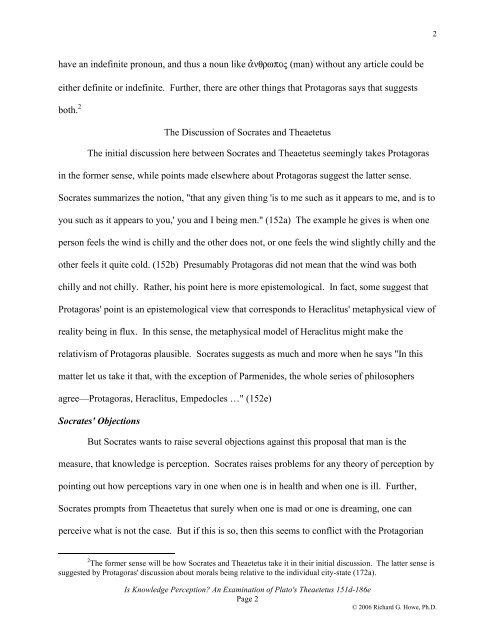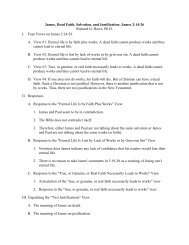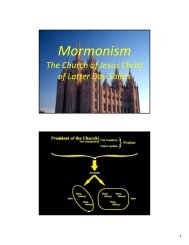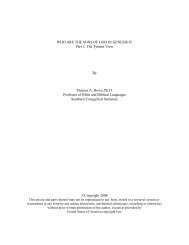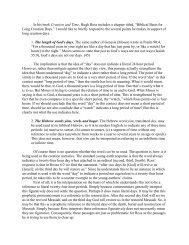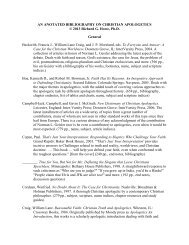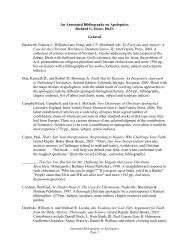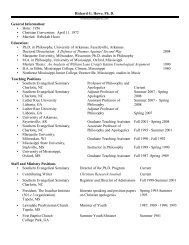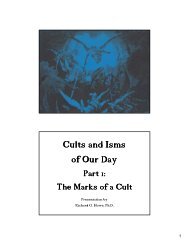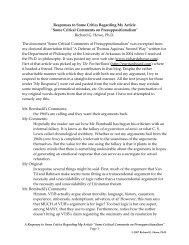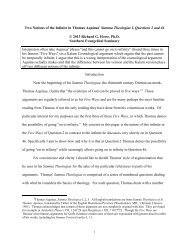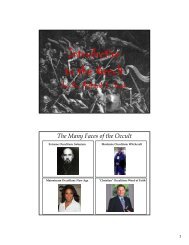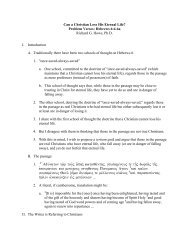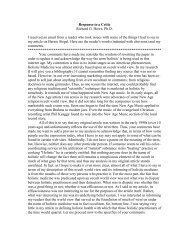Is Knowledge Perception? An Examination of ... - Richard G. Howe
Is Knowledge Perception? An Examination of ... - Richard G. Howe
Is Knowledge Perception? An Examination of ... - Richard G. Howe
Create successful ePaper yourself
Turn your PDF publications into a flip-book with our unique Google optimized e-Paper software.
2have an indefinite pronoun, and thus a noun like avjnqrwpo" (man) without any article could beeither definite or indefinite. Further, there are other things that Protagoras says that suggestsboth. 2The Discussion <strong>of</strong> Socrates and TheaetetusThe initial discussion here between Socrates and Theaetetus seemingly takes Protagorasin the former sense, while points made elsewhere about Protagoras suggest the latter sense.Socrates summarizes the notion, "that any given thing 'is to me such as it appears to me, and is toyou such as it appears to you,' you and I being men." (152a) The example he gives is when oneperson feels the wind is chilly and the other does not, or one feels the wind slightly chilly and theother feels it quite cold. (152b) Presumably Protagoras did not mean that the wind was bothchilly and not chilly. Rather, his point here is more epistemological. In fact, some suggest thatProtagoras' point is an epistemological view that corresponds to Heraclitus' metaphysical view <strong>of</strong>reality being in flux. In this sense, the metaphysical model <strong>of</strong> Heraclitus might make therelativism <strong>of</strong> Protagoras plausible. Socrates suggests as much and more when he says "In thismatter let us take it that, with the exception <strong>of</strong> Parmenides, the whole series <strong>of</strong> philosophersagree—Protagoras, Heraclitus, Empedocles …" (152e)Socrates' ObjectionsBut Socrates wants to raise several objections against this proposal that man is themeasure, that knowledge is perception. Socrates raises problems for any theory <strong>of</strong> perception bypointing out how perceptions vary in one when one is in health and when one is ill. Further,Socrates prompts from Theaetetus that surely when one is mad or one is dreaming, one canperceive what is not the case. But if this is so, then this seems to conflict with the Protagorian2 The former sense will be how Socrates and Theaetetus take it in their initial discussion. The latter sense issuggested by Protagoras' discussion about morals being relative to the individual city-state (172a).<strong>Is</strong> <strong>Knowledge</strong> <strong>Perception</strong>? <strong>An</strong> <strong>Examination</strong> <strong>of</strong> Plato's Theaetetus 151d-186ePage 2© 2006 <strong>Richard</strong> G. <strong>Howe</strong>, Ph.D.


